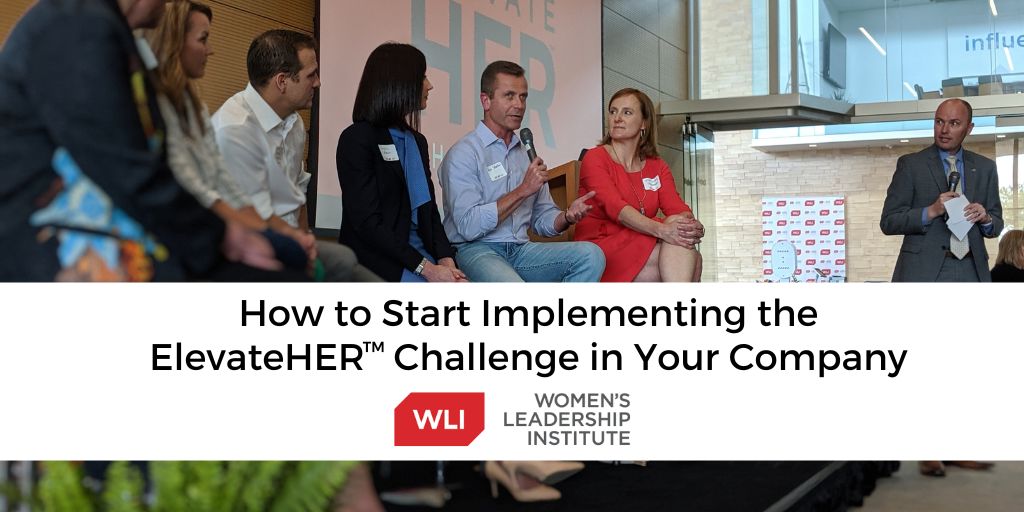“I believe diversity is a business imperative and a moral imperative. There are very specific business reasons why we needed to have a diversity initiative. [Workfront] had a lot of headwinds, but I believe you sit down and treat [diversity] like any other business issue you have. You assess the situation, you get some expertise, you start making systems changes, you start taking visible action. People can see you as an executive are serious about [diversity] and you can make the same kind of progress that we made at Workfont.”
Why Diversity Matters
- Attract the best talent. With talent shortages setting records, you need access to the entire diverse workforce.
- Build a culture where everyone belongs. An inclusive culture will increase retention rates and improve employee engagement.
- Relate to your customers. Are your customers diverse? It’s critical that your team can speak to the pain points your customers share. Diverse teams create diverse thoughts and improve product outcomes.
At a 2021 WLI Diversity Summit in Southern Utah, Alex Shootman, former Workfront CEO, gave advice on how you too can have progress in your company like Workfront did.
How to start the ElevateHER™ Challenge diversity initiative:
- Assess the current state of the ElevateHER™ Challenge pillar(s) you are focusing on.
Data rules. You can’t decide where you are going if you don’t know where you are and data will show you. What are your company’s current numbers on employee engagement, retention rates, women vs. men, women in senior leadership positions? Do you know your gender pay gap? How many women are on your board?
The Women’s Leadership Institute recommends you have at least 30% women on boards but also at every management level where decisions are made. This even includes your interview panels. The 30% threshold is Critical Mass and the necessary tipping point for change in gender diversity in an organization.
In addition to leadership makeup, remember to also assess compensation packages, benefits packages, and any unspoken company rules or stigmas that might be driven by biases.
Who’s always taking notes or cleaning up after a meeting? A female? What social work activities do you have for your employees? Can they easily include men and women?
2. Get coaches and ask for help.
The Women’s Leadership Institute is here to help and coach you through each step. We are only an email away.
In addition, who do you know in your industry who can help you do assessment with outside perspective? Reach out to them.
3. Make system changes.
Do you have the right systems in place to track your data? Workfront shares that they were not actually collecting the right data to know how diverse their workforce really was.
What easy changes can you make to your company policies or employee experiences? Some examples WLI has seen other ElevateHER™ Challenge companies do include:
- Better paternity plans
- Hospital-grade pumps in nursing rooms
- Improving hiring processes to reduce bias and increase diversity
- Use color-coded or predictive personality tests to offer more inclusive conversations about the value each employee offers
4. Do visible things.
Show your employees and customers your commitment to diversity by doing visible actions. Shootman does warn that “when you do visible things [toward diversity], it causes the emotions in the company to come to the surface and that’s O.K. because it creates opportunity to have conversations.”
Do visible things anyway. Make the changes and have important conversations. Your company culture is worth it. Here are ideas of visible things:
- Take the ElevateHER™ Challenge and make a big deal about it.
- Include a member of your C-suite in each DEI meeting — preferably a male leader.
- Create a culture calendar and celebrate regularly with your team.
- Don’t start an interview process until you have a diverse candidate pool.
Case Study
Workfront joined WLI’s ElevateHER™ Challenge in 2018, led by then CEO Alex Shootman. Shootman had been leading Workfront since 2016 and knew the company had lots of work to do to become a diverse workplace. His dedicated efforts paid off — literally.
In 2021 Workfront, who at one point was a small company in Lehi, Utah with only ever 150 million raised by investors, sold to Adobe for 1.5 billion dollars, paid in cash.
“One of the most important reasons why they did, is because our culture matched their culture. They did a deep dive on our culture and said `I don’t care how great the software is. I don’t care how great a business is. If you are not a tolerant, diverse culture we’re not going to bring you into the Adobe company,'” explained Shootman.
But that’s not even what Shootman is most proud of.
“And the thing that I’m most proud of,” adds Shootman, “this Lehi, Utah company, was rated by USA Today in 2019 as the second Best Large Company in the United States for women to work for. That’s awesome.”

Nicole Carpenter
Director of Programs and Operations, Women's Leadership Institute
Nicole Carpenter has been a part of the Women's Leadership Institute since its inception in 2015 as a member of the Advisory Board. In 2017, Nicole moved over as an integral part of the WLI team. In addition to the Women's Leadership Institute, Nicole continues to advocate for women as an author, speaker...

